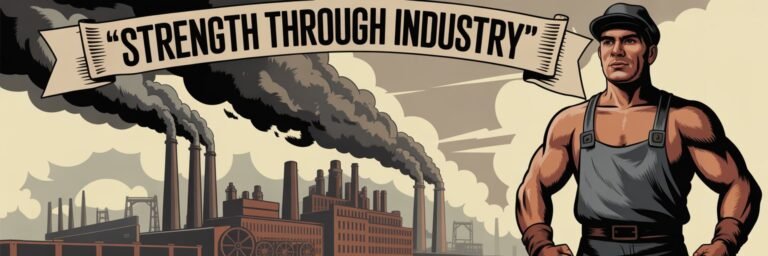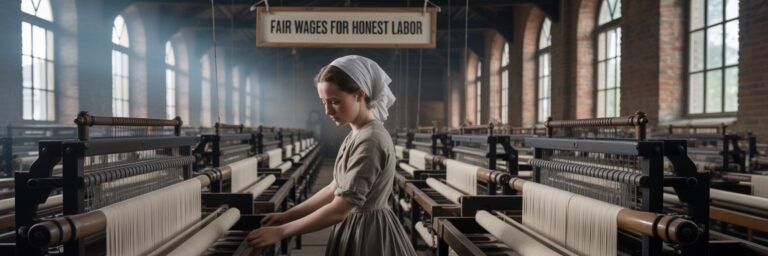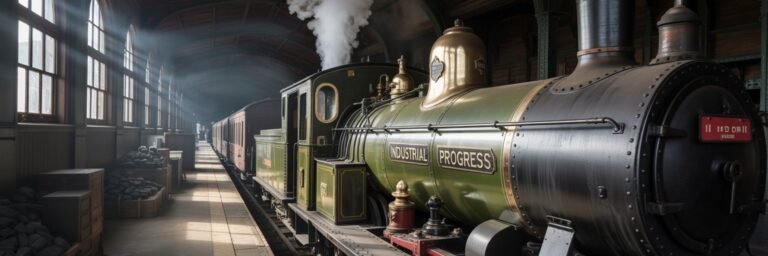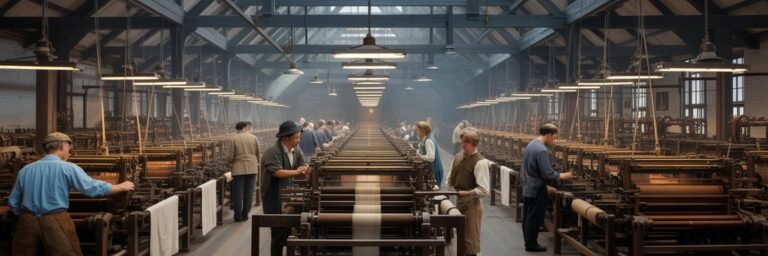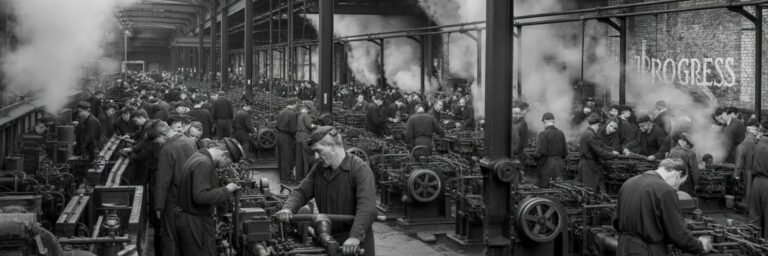INTRODUCTION
The Industrial Revolution, marking the transition from agrarian societies to industrialized urban hubs, ranks among the most significant transformative instances in human history. Based on mechanical innovation, the explosion of capitalism, and a radical restructuring of societies, it fundamentally modified the humdrum of everyday life. Delving into this historical epoch not only opens the door to fascinating mysteries, intricate theories, and lesser-known controversies but also provides a prism to gauge our contemporary realities. Unraveling the secrets of the Industrial Revolution is akin to embarking on a journey, piercing the fog of time, to understand the birth of the modern world.
HISTORICAL BACKGROUND
The Industrial Revolution, spanning from approximately 1760 to 1840, was kick-started by Great Britain. The shift from manual and animal-based labor to machines began with changes in the British textile industry. The invention of the spinning jenny by James Hargreaves in 1764, Richard Arkwright’s water frame in 1769, and Samuel Crompton’s spinning mule in 1779 transformed textile production, making it cheaper and faster.
The significance of this era extends beyond textile production. The technologies of the Industrial Revolution, such as the steam engine, invented by James Watt in 1775, and the development of railroads, enabled the mass extraction of coal and iron, fueling other industries. Workers moved from the countryside to burgeoning industrial cities, essentially spawning urbanization—a marker of the modern age.
THEORIES AND INTERPRETATIONS
Several theories attempt to explain what propelled the Industrial Revolution. The classic interpretation, put forward by Robert C. Allen, posits that Britain’s unique wage-good relations and low energy costs created a favorable condition for innovators, leading to industrialization. Other historians, like Kenneth Pomeranz, argue it was the ecological windfall procured through colonization that provided the platform for Britain’s industrial success.
The significance of ideological and cultural factors has been emphasized by historians such as Deirdre McCloskey. Her “Bourgeois Dignity” thesis places weight upon the shifting cultural attitudes towards commerce and innovation, which encouraged economic growth. On the other hand, Robert Brenner’s Marxist interpretation shifts the focus away from culture and economics, focusing on agrarian class structures that existed before industrialization.
MYSTERIES AND CONTROVERSIES
Despite the richness of historical details, the Industrial Revolution is shrouded in several mysteries. Why did Britain, a relatively small nation, become the springboard for this epochal change, instead of larger, richer countries like China or India? Why did the Industrial Revolution occur in the 18th century and not any other? These questions elicit debates among historians, attracting a myriad of interpretations and theories.
Another point of controversy revolves around the living conditions of the working class during the Industrial Revolution. While some point to increased income and consumer goods as evidence of better living conditions, others highlight the squalor of industrial cities, exploitative working conditions, and inadequate wages, arguing that industrialization initially led to a deterioration in the quality of life.
SYMBOLISM AND CULTURAL SIGNIFICANCE
The Industrial Revolution also had profound symbolism and cultural significance. It heralded the arrival of the “machine age,” conveying both the power of human ingenuity and an ominous foreshadowing of mechanized societies. Industrialization became synonymous with progress and modernity, symbolizing freedoms from traditional hierarchies and agrarian hardship. It provided fertile ground for cultural shifts including the growth of a new middle class, democratization, and secularism.
However, this ‘progress’ was intrinsically tied with disquieting undertones. Industrial towns with their belching smokestacks represented the exploitation of labor and environmental detriment, an enduring symbol of capitalism’s dark side explored in Dickensian literature and Marxian thought.
MODERN INVESTIGATIONS
Modern investigations into the Industrial Revolution have utilized an array of methods. From statistical data analysis to archaeological excavations, the endeavor to demystify the Industrial Revolution is ever-evolving. Emboldened by digital humanities, historians such as Robert C. Allen leverage computer-based analytic techniques to illustrate historical realities with an unprecedented degree of intricacy.
Simultaneously, stimulate new questions and hypotheses. Intensive researches strive to explore the global dimensions of this phenomenon by investigating transnational connections and impacts. Environmental historians, examining the ecological ramifications, see the Industrial Revolution as the genesis of the anthropocene—the era of significant human impact on the world’s ecosystems.
LEGACY AND CONCLUSION
The impact of the Industrial Revolution resonates strongly even today. Most of our contemporary economic systems, societal structure, and technological underpinnings trace their lineage to this crucial epoch. Yet, it’s not just mere echoes; the Industrial Revolution forms the bedrock of our existence. Our attitudes towards work, consumption, progress, and innovation have their genesis in this period.
However, its legacy is two-fold. While technological advancement and economic prosperity belong to one aspect, the issues of labor exploitation, social inequality, and environmental degradation are troublesome inheritances from the Industrial Revolution.
The Industrial Revolution is more than a historical phase; it’s a critical thread in the tapestry of the shared human past. It serves as a potent reminder of humanity’s creative potential and the profound societal implications it can wield. As George Santayana’s well-worn adage goes, “those who cannot remember the past are condemned to repeat it.” Understanding the nuances, mysteries, controversies, and legacy of the Industrial Revolution is a step towards ensuring our future resembles the best parts of our historical model and not the worst. And, in that quest, every secret unearthed draws us closer to historical enlightenment.

